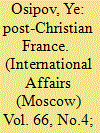| Srl | Item |
| 1 |
ID:
162210


|
|
|
|
|
| Summary/Abstract |
Interest groups contribute much less to campaigns than legally allowed. Consequently, prevailing theories infer these contributions must yield minimal returns. I argue constraints on PAC fundraising may also explain why interest groups give little. I illuminate one such constraint: access-seeking PACs rely on voluntary donations from affiliated individuals (e.g., employees), and these PACs alienate donors with partisan preferences when giving to the opposite party. First, difference-in-differences analysis of real giving shows donors withhold donations to access-seeking PACs when PACs contribute to out-partisan politicians. Next, an original survey of corporate PAC donors demonstrates they know how their PACs allocate contributions across parties, and replicates the observational study in an experiment. Donors’ partisanship thus limits access-seeking PACs’ fundraising and influence. This provides a new perspective on why there is little interest group money in elections, and has broad implications for how partisan preferences and other internal constraints shape interest group strategy.
|
|
|
|
|
|
|
|
|
|
|
|
|
|
|
|
| 2 |
ID:
174526


|
|
|
|
|
| Summary/Abstract |
IN THE LAST FEW YEARS, prominent philosophers, sociologists, historians, and anthropologists have demonstrated a lot of interest in the deep-cutting changes unfolding in French society since the 1960s. On the whole, all of them write about post-Christian France that differs a lot from the country of previous generations. Jérôme Fourquet's The French Archipelago,1 published in 2019 has already become the most popular, or even iconic, book. The author has presented the French society as splintered and fragmented, having journeyed from a united and inseparable nation to a multicultural "archipelago." Fourquet is not alone; hundreds of other publications describe the same phenomenon. Such are the works of philosopher Alain Finkielkraut, demographer and historian Hervé Le Bras, and historian and anthropologist Emmanuel Todd. The book How Our World Ceased to Be Christian2 by historian Guillaume Cuchet stirred up a lot of interest.
|
|
|
|
|
|
|
|
|
|
|
|
|
|
|
|